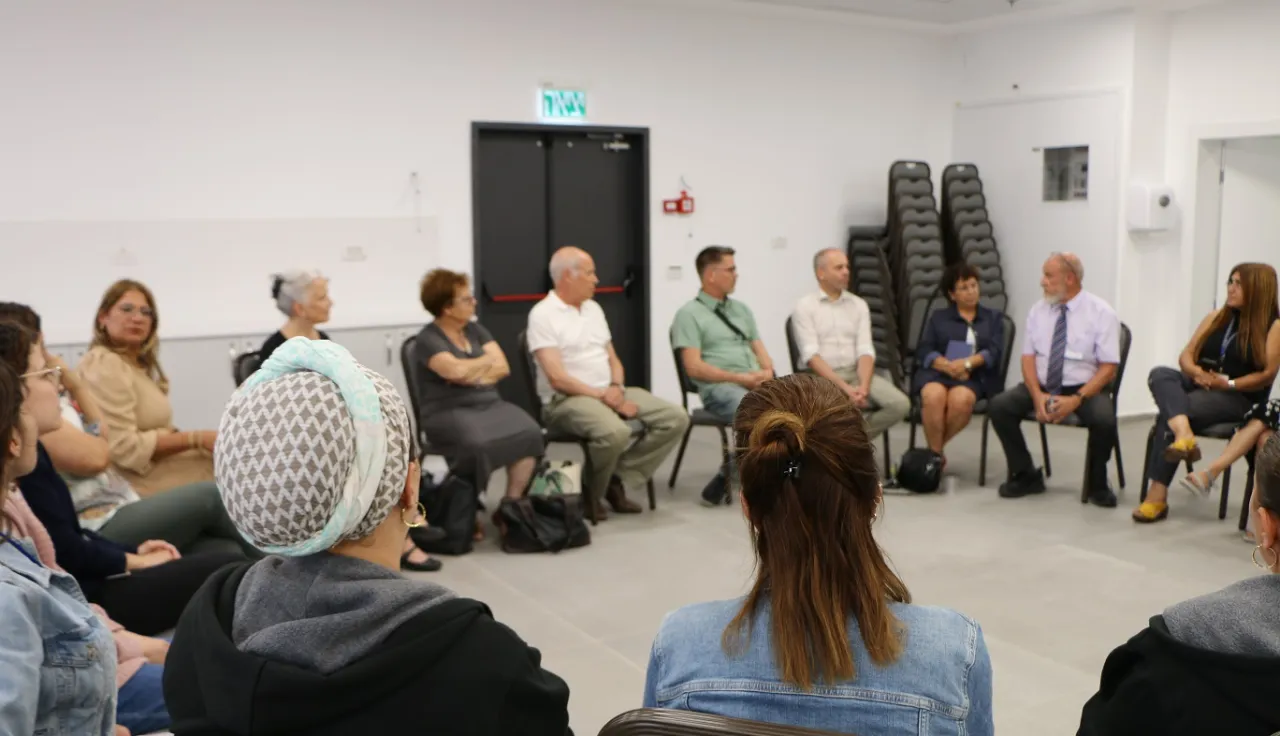Israel: Helping frontline workers address their mental health needs

Frequently exposed to armed conflict and its consequences, the staff of Barzilai Hospital are the first responders to waves of patients coping with trauma and anxiety. This is how the International Committee of the Red Cross (ICRC) supports their work, in an attempt to reduce the impact of secondary trauma and compassion fatigue.
"I believe 98% of our staff suffer from one form or another of Post-Traumatic Stress Disorder (PTSD)," says Dr. Ron Lobel, Director of Preparedness for Emergencies at Barzilai Hospital – a medical center located near the border between Israel and Gaza.
It is a hot summer day, and Dr. Lobel is meeting with the hospital's mental health staff in a seminar aimed to train them on the use of the Eye Movement Desensitization and Reprocessing (EMDR) treatment. This is a method focused on addressing acute shock, anxiety, and trauma. Staff at this hospital in Ashkelon support patients, their families and other hospital staff with initial mental health response during and following armed hostilities. Patients come from Israeli communities living near Gaza, and sometimes from right across the border with Gaza. "We are 12 kilometers away from the border, and over the past years we've been under stressful situations. This program is very important to us," says Dr. Lobel.
Hospital staff, ranging from doctors and nurses to social workers and psychiatrists, must work in a state of constant preparedness for hostilities whilst exposed to secondary trauma and burnout.
To give hospital staff more tools to cope with this stressful environment, the ICRC, Barzilai Hospital, and the Israeli Trauma Coalition (ITC) initiated the "Helping the Helpers" program, which is designed to strengthen the mental resilience of caregivers on the frontlines of armed conflict and violence.
"Armed hostilities lead to much more than physical wounds," says Yves Giebens, Health Coordinator at the ICRC. "People, including frontline workers, come with the experience of what we call 'mental wounds', and to give space and time to deal with them is very important," he adds.
"I was very fortunate to get exposed to EMDR training 20 year ago and had some experience with it before we started having major missile attacks in Ashkelon," says Dori Tebak Hazan, Educational Psychologist and a supervisor in the EMDR method. "Later, I was stationed in a crisis center and was able to use this tool to help people, who were coming in large numbers, to work through their acute stress reactions and help them get back on their feet. Being able to be effective for other people was also very helpful in keeping me from having compassion fatigue and secondary trauma. I think I still had some, but it definitely gave me a sense of accomplishment and effectiveness," she adds.
EMDR is a short-term treatment method based on repeated bilateral activation of the nervous system and has been proven through research to be very effective and useful for processing traumatic events, dealing with acute anxiety and shock, and implementing emergency mental health interventions. This method is proven to reduce symptoms of anxiety and distress, and it makes interventions possible during the acute stage as well as after it.



